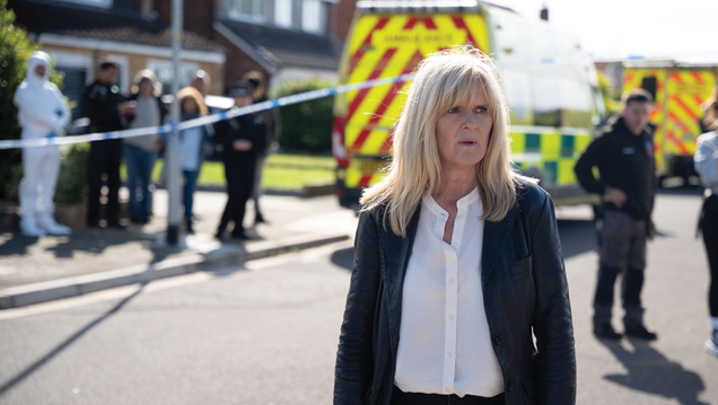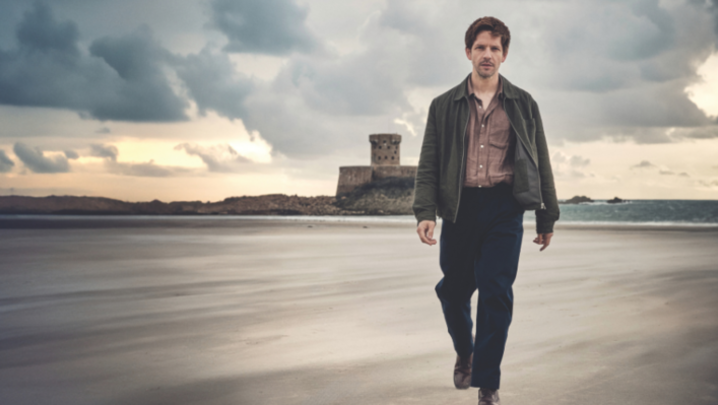Manori Ravindran is impressed by a collection of essays on funding the BBC but is disappointed by the lack of diversity in the contributors
If Clive Myrie asks you to close your eyes and imagine a world without the BBC, you do it. It will look a little different for everyone but, for me, there’s no Traitors, Planet Earth, Interior Design Masters, Panorama, Ten O’Clock News and — perhaps worst of all — no Gardener’s World. Personally, I’m not sure there’d be much point in going on, but others might not even blink.
Myrie, who presents Mastermind among his extensive work for the corporation, writes elegantly about this hellscape in the essay “Dystopia: life without a BBC”, which also outlines the results of a BBC-commissioned study that deprived 80 households of all the corporation’s content and services for nine days. The result was that 70% of those who initially said they’d prefer not to have the BBC, or not to pay as much for it, changed their minds and were willing to pay the full licence fee — or more.
Myrie’s is one of 25 essays in the John Mair-edited How Do We Pay for the BBC After 2027?, which examines how the UK might fund the public service broadcaster after the current licence fee period expires on 31 December 2027. Mair’s book, which is his fifth edited work on the BBC, is an insightful, if occasionally repetitive, meditation on what promises to be a colossal melee for the BBC if it fails to propose a sustainable solution in time.
The licence fee, as so many authors rightly highlight, is an astonishingly resilient relic of a bygone era. The BBC was set up in 1922 by a group of radio manufacturers. Rather than use commercial advertising on air to fund the nascent company, the Government — expertly swayed by the BBC’s first General Manager, John Reith — set up an annual licence fee that was required for anyone looking to own or operate a wireless. The first annual licence fee was issued in 1923 and cost 10 shillings (50 pence), which, adjusted for inflation, would be £38 today. According to media and tech entrepreneur Roger Parry (who pens the rather excellent essay “The BBC deserves better than the licence fee”), by the end of that year, “there were about 200,000 radio licences generating around £100,000 annually”.
One hundred years later, and the licence fee endures to the tune of £159 per year, even though most — and certainly the vast majority of authors in Mair’s compendium — recognise that a hard reset is essential. The point, for example, that it is a regressive tax (that is, those from low incomes are forced to pay the same amount as high-income households), is made more than 10 times. Something needs to be done.
But what?
There are roughly four solid funding models often discussed, and they include a continuation of the licence fee, a subscription model of some kind, advertising and taxation. Naturally, each has advantages and drawbacks — but some more than others. Advertising is, by most accounts, a non-starter, not least due to the catastrophic ad downturn that currently has broadcasters such as Channel 4 up against it. Parry and others also make the point that the pool of ad funding is limited – and adding the BBC to the mix would be a commercial disaster for rivals such as ITV.
Then, there’s subscription, which is a slightly more engaging proposition given the way streamers such as Netflix and Prime Video have already trained audiences to subscribe, subscribe, subscribe. And people would pay for certain genres, such as drama and sport. But not everyone would subscribe, and it’s difficult to image subscribers supporting the high cost of news and current affairs, which is the beating heart of the BBC.
There’s much discussion of a progressive levy system that might see a fixed percentage supplement added to a council tax or broadband bill. This could — as London Business School professor Patrick Barwise suggests — offer protection from political interference and funding cuts. But the moment you move to a system that generates as much as the licence fee does currently, you can bet there are going to be political challenges.
Perhaps it’s not surprising, then, that most authors ultimately land on keeping the basic principle of the licence fee in place, albeit with key adjustments, or suggest a hybrid that incorporates elements from several of the models.
What I would have liked to see more of in How Do We Pay for the BBC After 2027? is a greater diversity of perspectives. The book is brimming with authority on the subject of the Beeb and its future. In fact, most contributors are former BBC employees; one of them, Greg Dyke, is a former Director-General.
But where are the ideas from Gen Z, the next generation of consumers, whom the BBC is falling over itself to cater to with digital-first content? They are the future, they have ideas, and we shouldn’t hesitate in seeking their input on the future of their public broadcaster.
Another glaring imbalance: of the 27 writers featured in this collection, just two are women — Maggie Brown, legendary journalist and Channel 4 historian, and analyst Alice Enders, who often finds herself the smartest head in any room. Together, they put forward a pair of the most engaging and intellectual propositions in the whole book.
There are many others who have fierce opinions about the future of the BBC and plenty of ideas about licence-fee reform. Where are they?
Diversity and representation, in general, aren’t given the airtime they richly deserve in How Do We Pay… and that’s not necessarily an oversight by Mair, but perhaps a missed opportunity for the vast majority of authors. Anyone who fails to see the connection between a dialogue around funding of the BBC and the diverse communities the corporation is meant to be serving does so at their peril. Surely, those who feel seen and served by their public broadcaster are far more likely to support its future.
Barnie Choudhury, a former BBC staffer and a lecturer in journalism at the University of East Anglia, dares the reader to list more than 10 hardcore investigations that have had a tangible impact on communities of colour in the past 20 years. “You will fail,” writes Choudhury. “The BBC sees the world through a white, male, middle-class lens. It preaches diversity when, in fact, it practises tired stories.”
As we wait with bated breath to hear more about culture secretary Lucy Frazer’s licence-fee review, let’s remember that the Government has form in making a big stink about shaking up the broadcasting ecosystem, only to turn around and say, “Sod it, let’s just leave it.”
Despite its dire financial situation at present, last January the Government scrapped plans to privatise Channel 4 after a costly, multi-year battle that saw virtually the entire indie production community and every top film and TV producer support the embattled broadcaster.
Which is to say, it would come as no surprise if, after an awful lot of hand-wringing about the future of the BBC, we land right back at a slightly sexier version of… the licence fee.
Maggie Brown perhaps puts it best in her essay, “Don’t destroy something that’s working”, when she says: “Keep it in place. Tweak it if objective research says that is required. But don’t fall for the argument that it is an anachronism. Or support moves that will use the fact it is imperfect to undermine or reduce it to an optional buy-in, destroying the value of a unifying force for good.”
How do we pay for the BBC after 2027? is edited by John Mair and independently published, priced £9.99. ISBN 979-8875587702.







